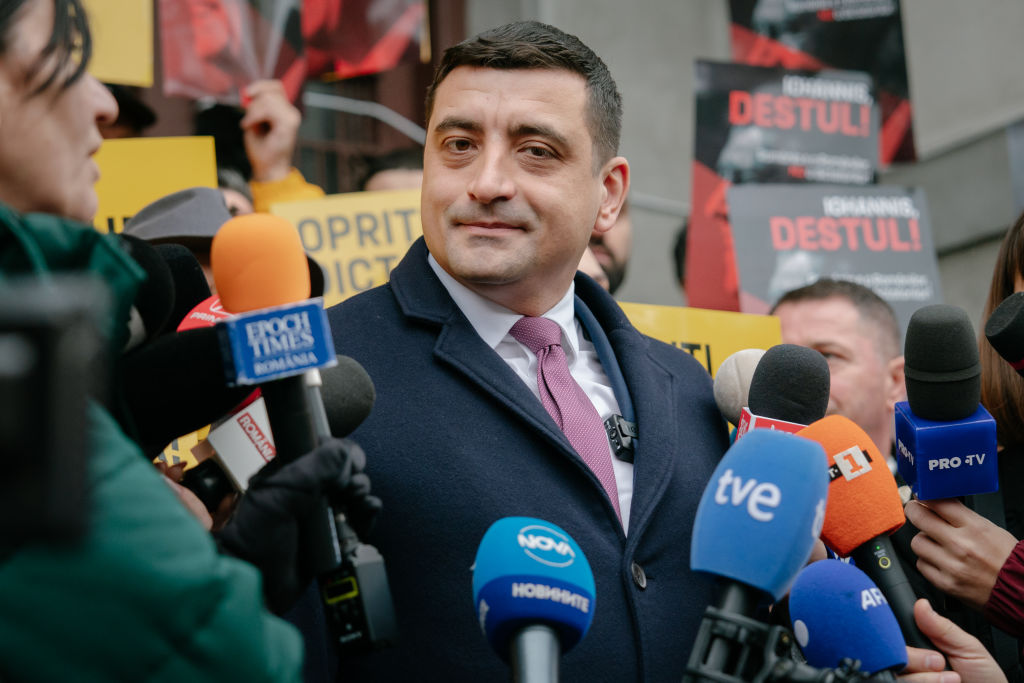Last Sunday’s election results were something of a wash for the populist-right. In Romania, nationalist George Simion lost his presidential election to a moderate centrist. In the first round of Poland’s presidential election, the establishment candidate, Rafal Trzaskowski, did slightly worse than expected, only narrowly beating the populist-right Law & Justice (Pis) candidate, Karol Nawroscki (and the total number of votes for anti-government candidates surpassed those of pro-government candidates). Finally, in Portugal, the populist-right Chega did unexpectedly well, tying the mainstream center-left and effectively ending that country’s two-party system.
Each of these countries were obviously unique and, due to being spread across the map, all had separate national characters and issues. But taken together, they were instructive and, one could even argue, ultimately cause for optimism for the Western populist-right movement.
Here’s why.
In two out of three of these countries – Romania and Portugal – right-populism is relatively new to the scene. Simion’s Alliance for the Union of Romanians (AUR) was founded in 2019, the same year that the populist-right Chega was founded. The fact that Simion came so close to the presidency after only having a political party for six years is remarkable. Plus, there’s reason to be optimistic for his and AUR’s future: they are currently the clear favourites for Romania’s parliamentary elections, and Simion has built an international base of support for himself for a second run.
Chega is in a similar situation. From having zero seats in 2019 to a quarter in 2025 is a remarkable shift; only a decimal point separated them from second place. In winning throughout the country’s south, they have now clearly established themselves as the alternative to the centre-right Democratic Alliance (AD). That’s remarkable success.
Poland is not new to populist-right governance – PiS governed the country until just a few years ago, and the current president is a PiS supporter – but when PiS lost power to a Donald Tusk-led centrist coalition two years ago, things seemed grim. But in that time, Tusk has not managed to do much (aside from using lawfare to attack opponents), failing to even pull back PiS’ abortion ban, a key campaign promise of his. And now, more people voted against the government than for it. While pro-government Trzaskowski is still likely to win the second round, his relatively weak result shows that Tusk is far from ensconced in power.
However, there are still lessons to be learned – one in particular extends across all three. And it is that populist parties need to acknowledge that the movement to make populistic nationalism the “default” right-wing view across the West will take time. This is a marathon, not a sprint, and we should start acting like it by working on coalition-building.
Past populist movements are instructive. The most successful American example, that of Andrew Jackson, began in 1824 with his first run for the White House. Yet it took until 1844 for his opponents finally to be soundly defeated and for him truly to have his views become the default. That’s twenty years. America is, for what it’s worth, engaged in a similar effort now: next month marks ten years since President Donald Trump first announced he was running for the White House, and the MAGA movement is far from done.
Trump’s success is also instructive. In 2016, he was seen as the most moderate Republican nominee in decades. He was obviously promising immense change, but he was not seen as a “fiery right-winger”, which allowed him to pick up crucial moderate votes. Once in office, he was seen as more conservative, but voters were by that point getting used to him.
What does that mean for those of us who wish to make the West great again? It means we need to strategise better. Simion did a good job building coalitions with international partners, getting support from American congressmen and meeting with Italy’s Prime Minister, Giorgia Meloni. But internally, it was a slightly different story. Just as one example, internally, Simion supported the absorption of Moldova into Romania. This infuriated Moldova and Romanians who lived there; voting then surged among Romanians who live in Moldova, and 88 per cent of them voted for Simion’s opponent. It is understandable to wish to see one’s dreams for one’s country come to fruition, but he may have been aided in waiting to lean heavily onto that policy plank.
Likewise, the populist-right is starting to fracture in Poland. If nationalists had been united, they would nearly have won the election outright. Plus, the demographic data is positively frightening for PiS: among voters 18-29, they came in third – and Confederation, the second-most popular nationalist party, came in a clear first. All efforts should be dedicated to bridging a divide among the nationalist camp, instead of sniping at one another. This may be difficult – forced marriages often are – but it is that or watch nationalists lose narrowly and repeatedly to centrists.
Portugal’s Chega, while a success story, is still indicative of how hard it is for populists to gain power: a quarter of the seats is an incredible success, but it is far from a majority. They should make efforts to become truly palatable to the centre-right as partners; if they try but are rejected, voters will likely respect their attempt.
This is frustrating to those of us who want change now, especially seeing how in many countries the centre-right is far more interested in saving the establishmentarian status quo than in actually governing. But these elections give the nationalists reason to be hopeful. With a little strategy and a lot of elbow grease, in the years to come they can supplant the centre-right and save Western civilization.





Bulgaria’s government should give their people a voice on the euro